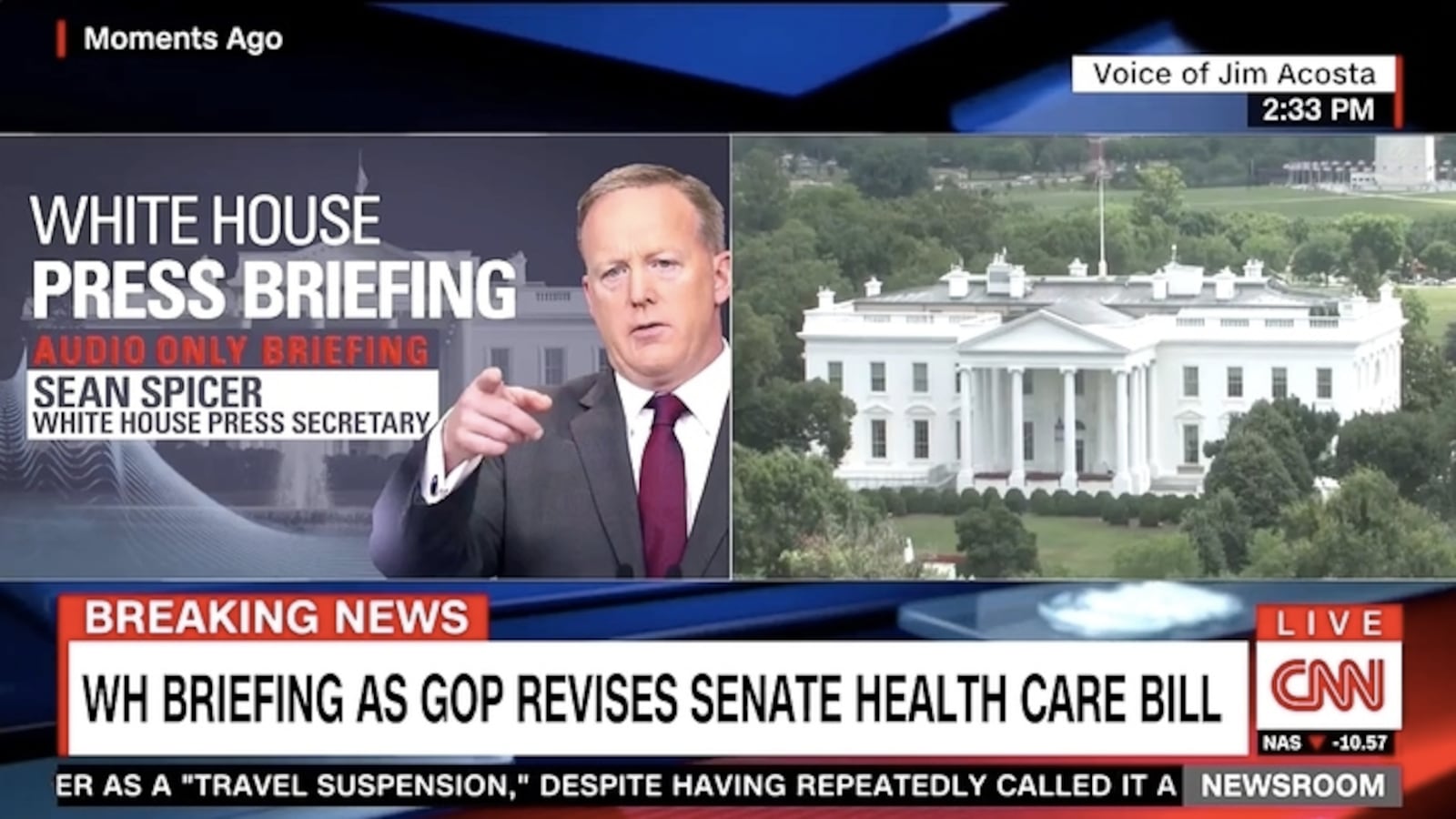CNN’s Jim Acosta confronted White House Press Secretary Sean Spicer on the Trump administration’s decision to ban cameras from the briefing room on Monday. But the only reason we know about it is because Acosta’s fellow reporters tweeted the details.
When Acosta tried to get in a question, Spicer admonished him, saying, “There’s no camera on, Jim.” This led to a tense exchange between the two men, with Acosta shouting back, "Maybe we should turn the cameras on, Sean, why don't we turn the cameras on? Why not turn the cameras on? They’re in the room, the lights are on!” Spicer ignored him.
Audio from the briefing was embargoed until after it has ended, but then aired in its entirety on CNN and elsewhere.
The reporter began expressing his displeasure with the situation before the briefing began in a series of tweets:
“I think it’s critical that we point that out to viewers,” Acosta added, in a stand-up appearance on CNN from the briefing room before it began. “That in addition to this briefing being off-camera today, the President is also eroding the expectations, eroding the traditions of covering the President of the United States here in Washington, in that he is holding a statement in the Rose Garden this afternoon with a foreign head of state and not taking questions from reporters.”
Acosta has been clashing with the Trump administration since early January, when he tried to ask the then-president-elect a question as his first press conference and was shouted down with the declaration, “You are fake news!” Ever since, he has been one of the strongest voices in opposition to the White House’s attempted media blackout.
During the briefing, several other journalists who were not in the room implored Acosta to turn on his cell phone camera and start live-streaming the briefing:
And then came this simple message from Acosta:
After the audio of the briefing aired on CNN, Acosta offered up some more context about why he decided to ask Spicer to turn the cameras on. “Make no mistake,” he said, “this is the gradual erosion of the expectations of the traditions that have been in place in this city for about a quarter of a century, that these briefings be held on camera.”
“I think that we just need to recognize what's happening here,” Acosta added. “And that is what we are typically accustomed to in this town, in terms of covering the White House, covering the United States government, that is being eroded away right in front of our eyes.”





